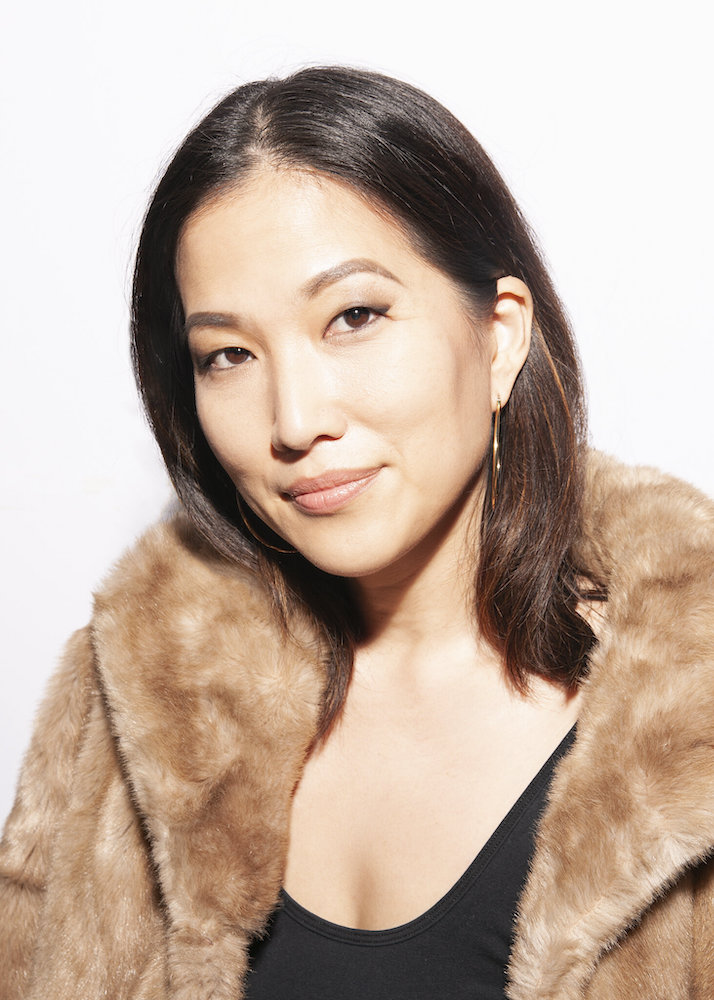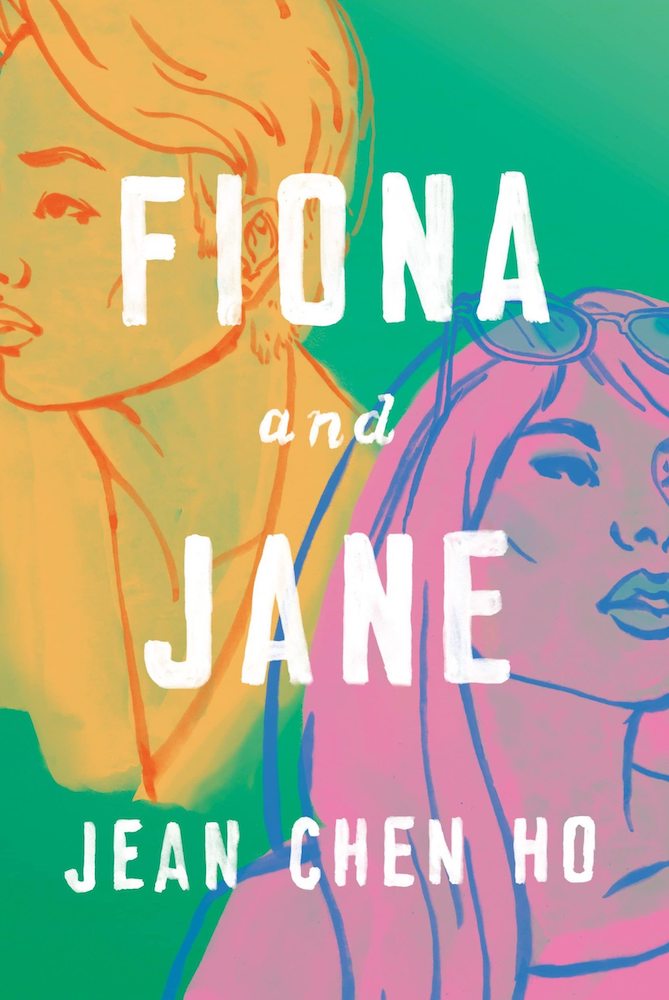The PEN Ten is PEN America’s weekly interview series. This week, Jenn Dees speaks with Jean Chen Ho, author of Fiona and Jane (Viking, 2022) – Amazon, Bookshop.
 1. What is your relationship to place, and stories of place?
1. What is your relationship to place, and stories of place?
I love story collections that cohere around place: I looked to Lost in the City by Edward P. Jones and Dubliners by James Joyce for guidance when I was writing Fiona and Jane. I really admire Bryan Washington’s Lot—the stories structured around different neighborhoods in Houston. I lived in Los Angeles for the most part while writing the book, but I visited New York a lot (to see friends, to attend the Kundiman retreat, and at one point I swapped apartments with a friend in Bed-Stuy for my place in Silverlake for a couple of months). In 2019, I traveled to Taipei for the first time since 2013—I feel so glad to have gone on that trip, right before the pandemic changed everything. Those are the three places where the stories in Fiona and Jane are set, and where various characters in the book run away—or toward—one another.
2. Where is your favorite place to write?
At a residency, preferably in some rural, woodsy place where I can take long afternoon walks. Far away from my regular life in Los Angeles, no WiFi, and where the food is delicious and cooked by someone who is not me. Bonus points if there are hot, interesting filmmakers/artists/composers/etc. to talk to at dinner…!
“I made a lot of awful, sad things happen to these characters [in Fiona and Jane]—failed romances, betrayals of trust, family secrets revealed)—and still, they manage to survive and even find joy, together. Their enduring friendship, all its ups and downs, make that possible.”
3. How do you fuel your writing process?
If I’m at the beginning of a project, I give myself permission to write a lot of terrible sentences without judging myself, just to get the first draft down. If I’m at a later stage, it’s important to stay organized: I’ll make a list of corrections and address them one at a time, from what feels easiest to the hardest. And if I ever feel stuck at any point, the answer is always, always to read. The solution I’m looking for is in a book that already exists, and done in a more elegant way than I could’ve ever imagined (which I can then just copy! It’s great!).
4. Some writers have special routines or talismans they keep close by when they write. Do you?
I have the vinyl cover to Prince’s album Prince (released in 1979) on my desk directly behind my computer so it feels like I’m staring into his eyes, if I look up from the screen. You can’t look into Prince’s eyes for too long—his gaze is way too powerful for mere mortals. So, in this way, I’m forced to turn my attention back to the computer whenever I start to drift off.
5. What do you read (or not read) when you’re writing?
I’m always reading at least two books at the same time. It’s probably not the best way to read but I can’t help it. Usually I have a book of poetry that I’m reading very slowly so I can savor it. I’ll read it first thing in the morning while I’m pooping (sorry, TMI). . . and then I’m always reading a novel or some other prose. It might be related to what I’m trying to write in some way (in style, structure, or subject matter) or it might not be. I’d be lying if I didn’t also add that I read stuff on the internet, Twitter, etc. I saw a funny tweet today that was like: “Reverse pomodoro method, where you work for five minutes then take a 25-minute break,” and honestly, that’s how it is sometimes.
“When you tell someone in Los Angeles you’re a ‘writer,’ they often assume you mean for TV. The city is in fact filled with tons of working writers, because of the entertainment industry. So one thing I love about living here is that you meet a lot of different kinds of writers, people doing lots of incredible, creative things—it’s a really inspiring kind of energy.”
6. Fiona and Jane is a story of a long, complicated friendship between two very different women. What draws you to these characters? How did they surprise you?
Their resilience surprised me. I made a lot of awful, sad things happen to these characters—failed romances, betrayals of trust, family secrets revealed)—and still, they manage to survive and even find joy, together. Their enduring friendship, all its ups and downs, make that possible. The ending of the book surprised me! I knew they’d come back together, but I didn’t quite know if or how they could forgive each other and themselves. I listened to what each woman had to say, and I wrote it down.
 7. Your book is partially set in Los Angeles, the city you live in. How has the Los Angeles community of writers influenced your writing and research? Has growing up in SoCal influenced your style?
7. Your book is partially set in Los Angeles, the city you live in. How has the Los Angeles community of writers influenced your writing and research? Has growing up in SoCal influenced your style?
When you tell someone in Los Angeles you’re a “writer,” they often assume you mean for TV. The city is in fact filled with tons of working writers, because of the entertainment industry. So one thing I love about living here is that you meet a lot of different kinds of writers, people doing lots of incredible, creative things—it’s a really inspiring kind of energy. It takes guts to pursue the arts, and I respect that so many people are here, trying to do just that. It makes for great eavesdropping when I’m sitting at a café. We may have different forms—mine is a book, yours is a pilot, hers is a standup set, they’re writing lyrics—but we’re all out here, doing our best to tell a compelling story. To share a point of view.
8. Are there any iconic friendships, real or fictional, that you have turned to for inspiration in the making of this book?
I’m inspired by the complicated friendship between Nel Wright and Sula Peace in Toni Morrison’s celebrated novel Sula, which begins in their girlhoods and changes over time, as they grow into women. In real life, I have longstanding friendships with a group of women who I’ve known since high school—seeing how each of them has changed, yet remain so much the same people they were when we were teenagers, has been really interesting to observe. I don’t have a lot of extended family in the United States—most of my relatives live in Taiwan, so my close friends really do feel like family to me. I’m a big believer in chosen family.
“I’m curious about where fiction and history meet, how memoir from historical figures—usually men, usually of a certain class—bleeds into the ‘official record.’ The scholar Saidiya Hartman makes a distinction between those who are bestowed the power of being ‘historical actors’ versus those who are ‘acted upon.’ I’m interested in how one can read and write the archive as a radical narrative.”
9. You are currently a doctoral candidate in creative writing and literature at USC. What draws you to the written word? What drives your curiosity?
Well, if you’re pursuing a Ph.D., your job is to research and read a lot. You live at the library. You download a million PDFs from JSTOR. I’m doing a historical project on the 19th century in Los Angeles, so I get to be very nosy about dead people. That’s what archival research is, essentially: digging around in dead people’s letters and diaries and receipts. It’s a powerful feeling, because dead people can’t explain what they meant or talk back. I’m curious about where fiction and history meet, how memoir from historical figures—usually men, usually of a certain class—bleeds into the “official record.” The scholar Saidiya Hartman makes a distinction between those who are bestowed the power of being “historical actors” versus those who are “acted upon.” I’m interested in how one can read and write the archive as a radical narrative.
10. What word of advice would you give to early-career writers embarking on their first book?
Find your co-conspirators in this wonderfully rewarding AND dispiriting endeavor called writing a book: friends who can cheer you on as they’re working on their own manuscripts, teachers/mentors whose advice you trust (though TBH, you won’t necessarily listen to…!) and who feel inclined to buy you lunch or a fancy cocktail once in a while, and the authors (living or deceased) whose books make you feel like it’s possible to do this thing, for real-for real—you know the books I’m talking about: the ones that made you want to be a writer in the first place. I kept them physically next to my computer as I was writing Fiona and Jane. One needs emotional support books on this journey!
Jean Chen Ho is a writer and doctoral candidate in creative writing and literature at the University of Southern California, where she is a Dornsife Fellow in fiction. She has an MFA from the University of Nevada, Las Vegas, and her writing has been published in Guernica, The Rumpus, The Offing, Apogee, McSweeney’s Internet Tendency, VIDA, NPR, BuzzFeed, Bitch, and others. She was born in Taiwan, grew up in Southern California, and lives in Los Angeles.

